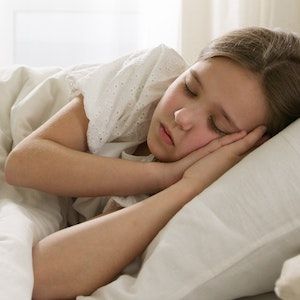Study Quantifies Various Types of Sleep Disturbance Prevalent in Rare Disease Population
New research supports the inclusion of sleep disturbance in clinical evaluation and management in the treatment of Phelan-McDermid Syndrome (PMS) due to the drastic impact it can have on the quality of life for patients and their families.

According to a new study, sleep disturbance should be considered in clinical evaluation and management in the treatment of Phelan-McDermid Syndrome (PMS) due to the drastic impact it can have on the quality of life for patients and their families.
Phelan-McDermid syndrome is a rare genetic condition characterized by developmental and speech delays, behavioral problems, and a desensitization or inability to feel pain or sweat. This congenital disease typically manifests in childhood and sleep disturbance is a primary concern reported by parents.
Despite the incredible impact due to disrupted sleep in these patients, little research exists to address this issue. In addition to these individuals struggling with the effects of neonatal hypotonia, feeding difficulties, lack of head control, and inhibited development, poor sleep hygiene also puts them at risk for accidents, disrupted metabolic and neurologic processes, and an overall poor quality of life that can extend to their caretakers.
Examining Sleep in Pathogenic Variants of PMS
Bridgette Moffitt, PhD, School of Nursing, Healthcare Genetics Doctoral Program, Clemson University, and a team of investigators aimed to identify and quantify specific sleep disturbances experienced by individuals with Phelan-McDermid Syndrome by reviewing the PMS Foundation International Registry and scientific literature.
Inclusion criteria consisted of a confimed diagnosis of PMS with presence of a SHANK3 pathogenic variant or a 22q13 deletion of known size and chromosomal breakpoints. The sleep-related data collected from the PMSIR included parent reports regarding 8 different sleep disturbances affecting their child: enuresis (bedwetting), difficulty falling asleep, frequent nighttime awakenings, difficulty going back to sleep after nighttime awakening, short nighttime sleep, night terrors, sleepwalking, and hypersomnia (excessive daytime sleepiness).
Registry data revealed that 73.4% of this patient population--284 patients out of 384--had sleep disturbance. According to investigators, the prevalence of sleep disturbance increased with age. Within the 0-3 year age group, 56% identified experiencing sleep disturbance, and then 90% of patients aged 18 or older.
Quantifying Sleep Disturbance
The primary disturbances demonstrated by results were circadian rhythm sleep disorders that included difficulty falling asleep, frequent nighttime awakenings, difficulty returning to sleep after a night-time awakening event, as well as hypersomnia and parasomnias involving enuresis, night terrors, sleepwalking, and sleep apnea.
Investigators noted that the role of haploinsufficiency of SHANK3 in sleep was supported by the similar frequency of sleep disturbance among both those with SHANK3 pathogenic variants (84.8%) and those with deletions (71.9%).
"This study's findings suggest that sleep disturbances are a prominent characteristic of PMS," the team concluded. "Therefore, individuals diagnosed with PMS should be assessed for a sleeping disturbance just as they would be for seizures and other neurological problems."
The study, "Sleep and Phelan–McDermid Syndrome: Lessons from the International Registry and the scientific literature" was published in Molecular Genetics & Genomic Medicine.